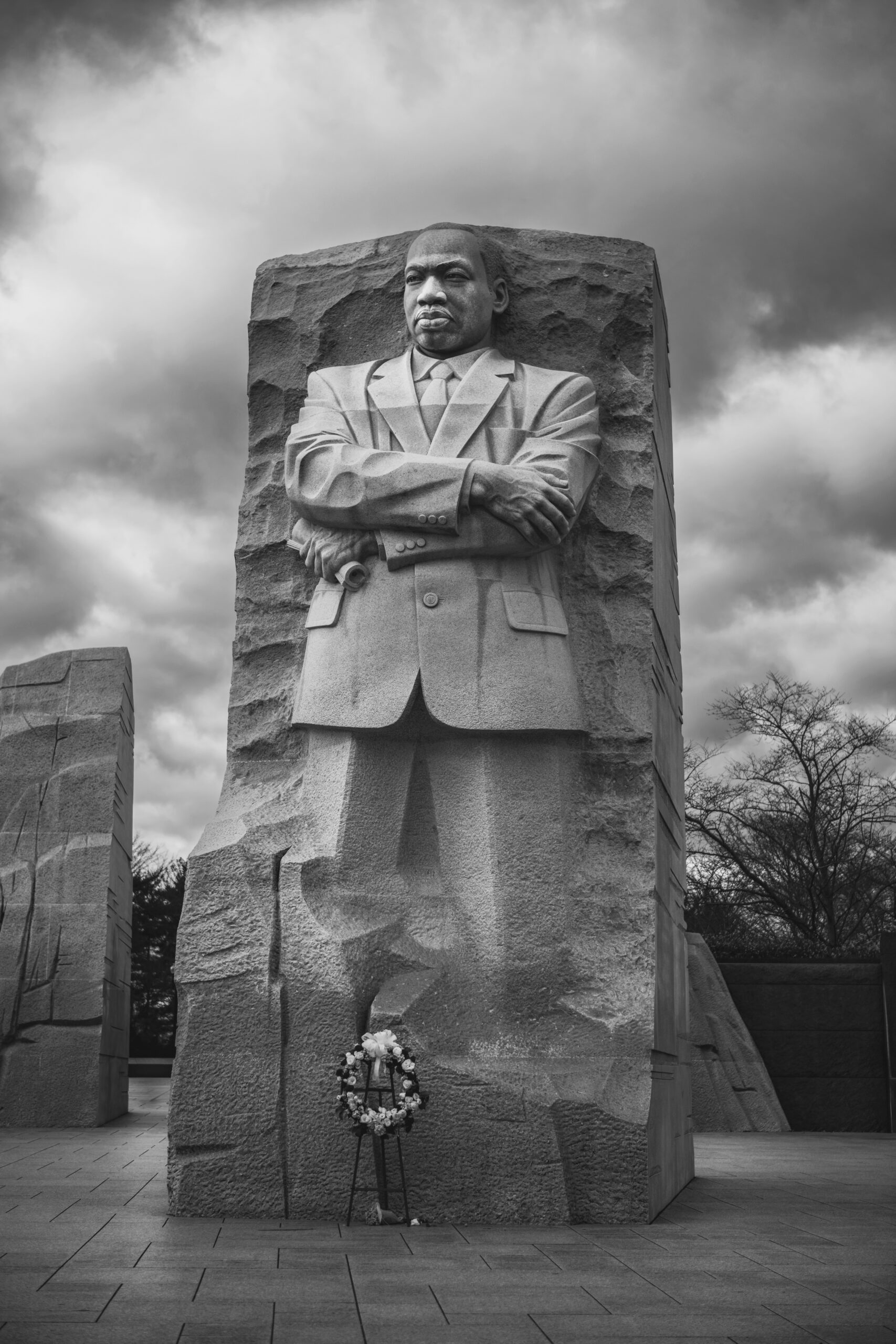Introduction to Dorothy Miles
Dorothy Miles was a prominent figure in the fields of education and activism, renowned for her unwavering commitment to social justice and the advancement of educational opportunities for marginalized communities. Born in the early 20th century in a modest household, she was shaped by the socio-political climate of her time, where the challenges of racial and economic inequalities were evident. Her formative years, marked by both struggle and resilience, fueled her passion for advocating change within society.
Throughout her career, Miles focused on improving educational systems and expanding access to quality education for all, especially for underprivileged children. She believed that education was a fundamental human right and used her voice to challenge the systemic barriers that limited educational equity. Her contributions included pioneering programs that catered to diverse learning needs and fostering inclusive environments in schools. Through tireless effort, she not only influenced educational policies but also inspired countless educators to adopt her innovative approaches.
AD
In addition to her work in education, Miles was a fervent activist, championing various social causes, including civil rights and community empowerment. Her activism was characterized by a profound understanding of the intersectionality of race, class, and gender, which motivated her to advocate for comprehensive reforms across multiple sectors. Dorothy Miles participated in various organizations and initiatives that sought to promote social equity, leaving a profound legacy that continues to resonate in current movements for justice.
As we delve deeper into the life and legacy of Dorothy Miles, it becomes clear that her impact transcends her immediate contributions. Her vision for a more equitable society has paved the way for future generations of activists and educators to continue the pursuit of social justice and educational reform.
Early Life and Education
Dorothy Miles was born into a family that valued education and social justice, which played a significant role in shaping her life’s mission. Raised in a modest household, her parents instilled in her the importance of learning and community engagement from a very young age. This supportive environment nurtured her curiosity and desire to challenge the status quo, particularly around issues of education and equity.
During her formative years, Dorothy exhibited a profound enthusiasm for reading and academic achievement. She attended local public schools, where she was often at the top of her class. Her teachers recognized her potential and encouraged her to pursue higher education. Dorothy’s steadfast commitment to her studies laid the groundwork for her future endeavors in both education and activism. In a time when opportunities for women, especially those from marginalized backgrounds, were limited, she persisted in her pursuit of knowledge.
Dorothy’s educational journey continued when she enrolled in college, where she majored in education. This experience further solidified her belief in the transformative power of education. She engaged with various organizations and initiatives that advocated for social change, particularly in the realm of educational access for underserved communities. This period was crucial in shaping her understanding of the systemic barriers that individuals faced and the role that education could play in dismantling those barriers.
Throughout her early life, key events, such as community service projects and mentorship from inspiring educators, reinforced her dedication to teaching and activism. These experiences not only deepened her commitment to educational equity but also instilled in her a lifelong passion for advocating for those who were disenfranchised. Dorothy Miles’s formative years, marked by family support and enriching educational experiences, laid a strong foundation for the remarkable contributions she would make in her lifetime.
Career in Education
Dorothy Miles dedicated her career to the field of education, championing innovative teaching methods and advocating for the advancement of educational practices. Her philosophy was grounded in the belief that education should be accessible to all, and she consistently aimed to create a learning environment that fostered inclusivity. By prioritizing student engagement, she utilized techniques that not only promoted critical thinking but also encouraged collaboration among students.
Throughout her career, Miles held various positions in educational institutions, ranging from classroom teacher to administrative roles. She implemented progressive teaching methodologies, integrating hands-on learning experiences that transformed traditional classroom dynamics. Miles was known for her ability to adapt her lessons to meet the diverse needs of her students, highlighting her commitment to differentiated instruction. This approach not only catered to various learning styles but also empowered students to take control of their educational journey.
One of the hallmark features of Miles’s teaching was her use of project-based learning, which allowed students to immerse themselves in real-world problems and develop solutions collaboratively. This innovative practice was a departure from rote memorization, encouraging students to think critically and work together towards common goals. Her role as a mentor and advocate for her students extended beyond the classroom; she often engaged with families and community members to foster a supportive learning environment.
The impact Dorothy Miles had on her students and the greater community is immeasurable. Many of her former students credit her with instilling a love for learning and the confidence to pursue their passions. By championing equitable education, she not only shaped the minds of her students but also influenced broader educational policies aimed at fostering diversity and inclusion in the academic landscape.
Activism and Advocacy Work
Dorothy Miles’s contributions to activism and advocacy are characterized by her unwavering commitment to social justice, particularly for marginalized communities. Throughout her life, she championed various causes that intersected with education, civil rights, and community empowerment. Active during a pivotal time in American history, Miles took part in movements advocating for equitable access to education, fair treatment of minority groups, and broader social reforms.
One of her notable initiatives was her engagement with local grassroots organizations that focused on improving educational opportunities for underrepresented youth. Through her work, she sought to dismantle systemic barriers that hindered educational access. By developing programs aimed at empowering students, she inspired many to pursue their academic goals and aspirations. Her belief that education is a fundamental right fueled her advocacy at every level, including community meetings, forums, and conferences.
Moreover, Dorothy Miles collaborated with several prominent activists and organizations, forming coalitions focused on common goals. One such partnership was with civil rights leaders during the desegregation movement, where she played a critical role in mobilizing community support and fostering dialogue around the importance of inclusive educational policies. Her efforts were not limited to her local community; she also contributed to national campaigns pushing for legislative changes that would benefit disenfranchised populations.
In addition to her work in education, Miles was a vocal advocate for women’s rights and anti-racism initiatives. She participated in rallies, organized workshops, and contributed writings that articulated the struggles faced by marginalized groups. These endeavors highlighted her understanding that activism requires both grassroots mobilization and strategic policy advocacy. By fostering partnerships and pushing for systemic change, Dorothy Miles left an indelible mark on the landscape of social justice, influencing future generations of activists dedicated to promoting equitable opportunities for all.
Challenges and Triumphs
Dorothy Miles’s journey as an educator and activist was not without significant challenges. Throughout her career, she encountered systemic barriers that were emblematic of the broader societal issues faced by many minority educators, particularly women of color. The educational landscape during her early years was riddled with obstacles such as inadequate resources, racial discrimination, and a lack of support from established institutions. This often left her feeling isolated and underappreciated as she fought for equitable education for all students.
In addition to systemic challenges, Miles faced personal struggles that tested her resilience. Balancing her commitments to family and community with her professional aspirations often felt overwhelming. Despite these hurdles, her unwavering commitment to her goals and her students became a source of strength. Dorothy took these experiences and transformed them into a powerful narrative that not only inspired her but also motivated others in her community to advocate for educational reform.
Throughout her career, Miles achieved several significant triumphs that underscored her determination and tenacity. She spearheaded initiatives that aimed not only to improve educational access for underprivileged children but also to create inclusive curricula that celebrated diverse cultural backgrounds. Her relentless efforts led to the establishment of programs that provided mentorship and leadership opportunities for young women, thereby empowering the next generation of activists and educators.
Furthermore, Dorothy’s advocacy extended into policy changes that aimed to dismantle systemic inequalities within the education system. Through collaborative efforts with other stakeholders, her activism contributed to a more equitable educational environment, showcasing her profound impact on the field. The challenges she faced were formidable, yet her triumphs serve as a testament to her incredible resilience and unwavering commitment to social justice and education reform.
Legacy in Education and Activism
Dorothy Miles’s contributions to education and activism extend far beyond her lifetime, leaving a profound legacy that continues to impact contemporary practices in both fields. As an educator, Miles was a staunch advocate for inclusive and equitable education. She understood the significance of fostering environments where every student could thrive. Her innovative teaching methods and commitment to curriculum reform have influenced modern educational frameworks, advocating for a holistic approach that prioritizes not just academic success but also social and emotional well-being.
In the realm of activism, Miles’s work highlighted the interconnectedness of education and social justice. She was deeply involved in movements that sought to address systemic inequalities and champion the rights of marginalized communities. Her vision for a society where education serves as a vehicle for empowerment and change remains relevant today. Current social justice movements draw inspiration from her methodologies and advocacy strategies, which emphasize grassroots organizing and community involvement.
Furthermore, the principles that Miles instilled in her students continue to resonate, inspiring new generations of educators and activists. Many who were influenced by her teachings have taken her message into their own classrooms and communities, applying her ideals of inclusivity and justice in their own unique ways. This generational transfer of knowledge and values exemplifies the lasting impact of her work. Educational institutions today often reference Miles’s approaches to curriculum design, highlighting her emphasis on culturally responsive pedagogy and critical thinking.
Ultimately, Dorothy Miles’s legacy is a testament to the power of education as a catalyst for social change. Her life’s work serves as a foundation upon which contemporary educators and activists can build, ensuring that her ideals of equity and justice continue to flourish long into the future.
Recognition and Awards
Dorothy Miles, a distinguished figure in education and activism, received numerous accolades throughout her life that reflect her indelible impact on her community and beyond. Her unwavering commitment to educational reform and social justice earned her respect and admiration from peers, students, and leaders alike. Among her most notable recognitions was the National Educator Award, which celebrated her innovative teaching methods and dedication to inclusive education. This prestigious award not only acknowledged her individual achievements but also highlighted her significant role in shaping inclusive education policies.
In addition to the National Educator Award, Miles was honored with several local awards aimed at recognizing her community service. The Community Leadership Award, presented by the local council, underscored her efforts to empower underrepresented groups and promote educational equity. This recognition served as a testament to her relentless advocacy for marginalized students and her belief that education is a fundamental right for all. Furthermore, her collaborative initiatives in the realm of education contributed to her receiving the Outstanding Educator Award from various educational associations.
Following her passing, Dorothy Miles continued to be celebrated for her legacy. Several institutions have named awards and scholarships in her honor, ensuring that her contributions to the field of education are not forgotten. These posthumous recognitions emphasize the lasting influence of her work and serve as an inspiration to new generations of educators and activists. Organizations focused on education equity continue to highlight her efforts, using her story as a catalyst for social change in modern contexts.
Through these honors, the legacy of Dorothy Miles endures, reminding us of the vital role that educators and activists play in shaping a more equitable society.
Inspiring Quotes and Anecdotes
Dorothy Miles, a formidable figure in the realm of education and social activism, left a lasting impact on countless individuals through her inspiring words and engaging anecdotes. One of her most renowned quotes encapsulates her philosophy: “Education is not just about filling a bucket, but lighting a fire.” This sentiment reflects her belief in the transformative power of learning—not merely as a means to acquire knowledge, but as a catalyst for personal and societal change. Her approach to teaching was vastly different from traditional methods, emphasizing the development of critical thinking and fostering a sense of curiosity in her students.
Reflecting on her time as an educator, one of her former students recounted a memorable moment in which Dorothy encouraged the class to challenge preconceived notions, promoting an environment of open dialogue and mutual respect. This anecdote highlights her commitment to not only educating but empowering her students to become thoughtful, inquisitive individuals ready to engage with the world. Her classroom was, in many ways, a sanctuary where students felt valued and understood, contributing to their overall growth and confidence.
Additionally, testimonials from peers reveal the warmth that characterized her relationships. Colleagues often described her as a beacon of support, someone who could always be counted on for compassionate advice. “Dorothy had a way of making everyone feel seen and heard,” shared a fellow educator. “Her empathy was unparalleled, and she taught us the importance of listening to our students and advocating for their needs.” Such reflections underscore her enduring legacy as an educator who not only imparted knowledge but also nurtured the hearts and minds of those she encountered.
Conclusion: Continuing the Journey
The life and legacy of Dorothy Miles serve as a profound reminder of the impact one individual can have on education and activism. Throughout her career, Miles demonstrated a commitment to advancing equity in education and advocating for the rights of marginalized communities. Her approach to teaching not only emphasized academic excellence but also incorporated social justice—a theme that resonates strongly in contemporary discussions around education reform. By empowering students and communities, she underscored the importance of collective action in addressing societal issues.
As we reflect on Miles’s contributions, it is critical to acknowledge that her work is not yet complete. The challenges that she faced, such as systemic inequality and social injustice, persist in various forms today. This ongoing struggle for educational equity and civil rights calls for renewed dedication and collaborative efforts. Miles’s teachings encourage us to seek continuous improvement in our educational systems, advocating for policies that support diversity and inclusion. It invites educators, students, and activists alike to engage in spirited dialogue and meaningful activism.
Moreover, the values and philosophies espoused by Dorothy Miles remain ever relevant. The need for culturally responsive teaching and inclusive practices in today’s classrooms are essential to preparing future generations for an increasingly diverse world. Each of us has a role to play in sustaining the legacy of those who came before us, ensuring that their dreams and ideals are not only remembered but actively pursued. As the guardians of this legacy, it is our collective responsibility to continue advocating for transformational change in education and society.
In embracing this journey, we honor Dorothy Miles by upholding the principles she championed, inspiring others to join the cause, and fostering a future where educational equity and social justice are realized for all.









